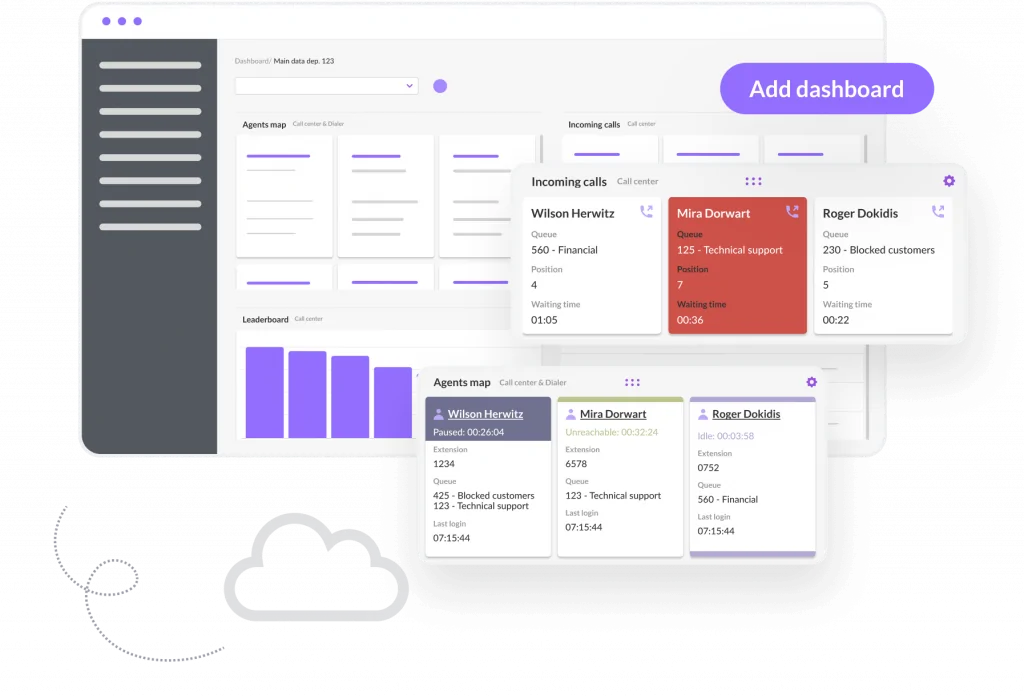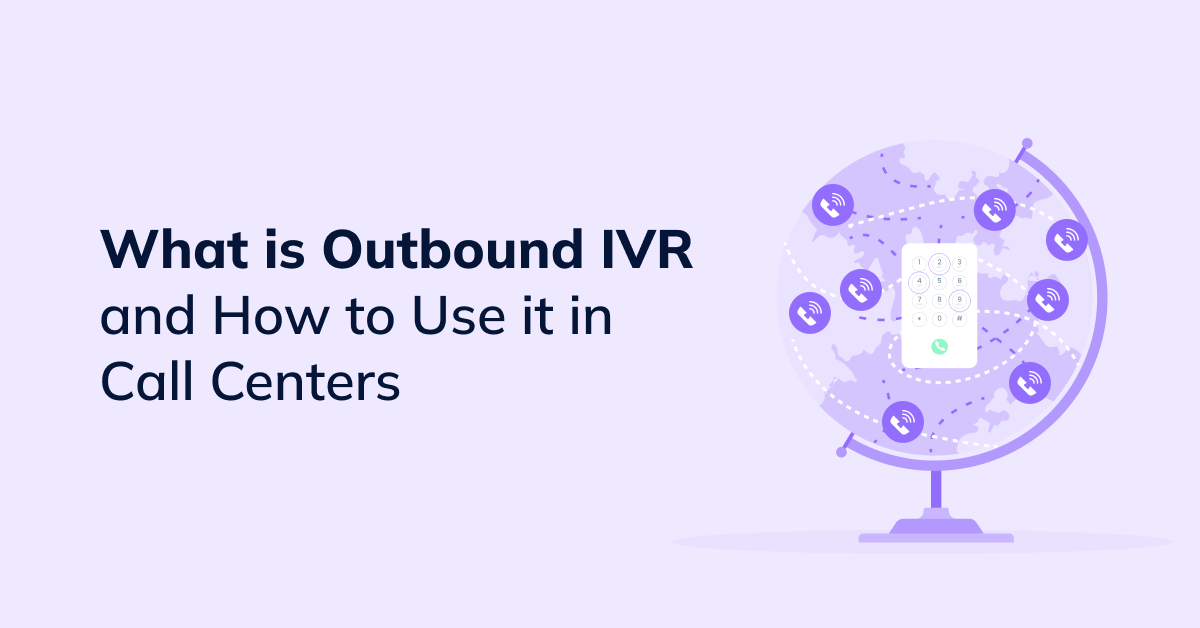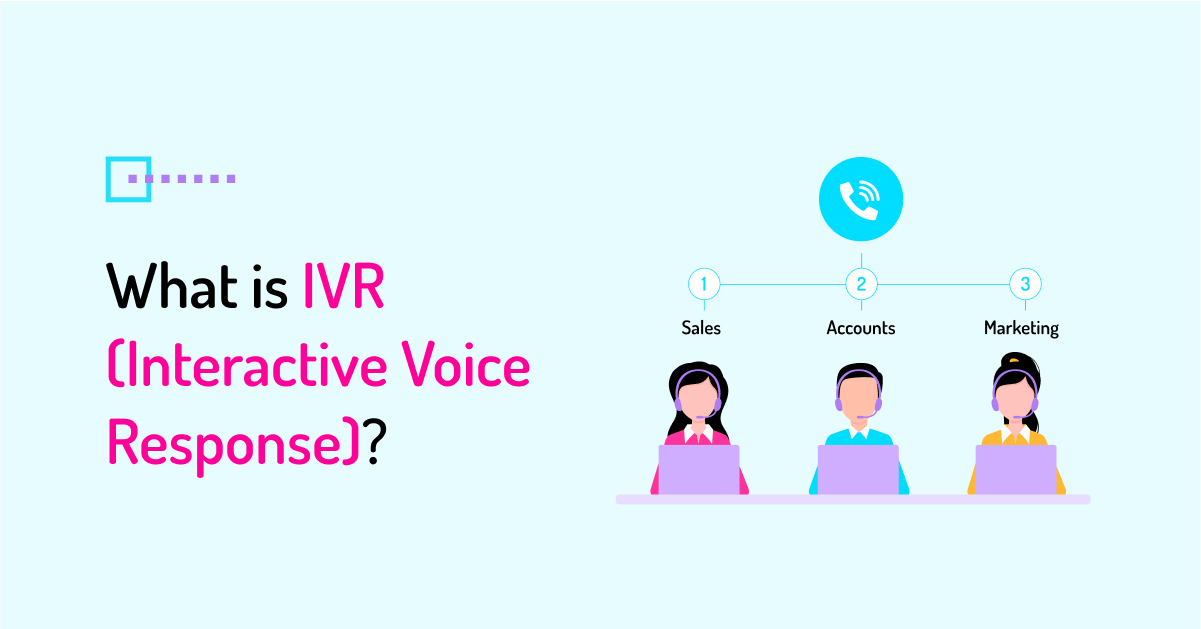Businesses have been using traditional PBX (Private Branch Exchange) systems for decades; however, hosted PBX solutions are gradually becoming more prevalent. From a wider range of advanced features and increased reliability to greater flexibility and cost savings – there are many reasons why more businesses are now switching from legacy phone systems to hosted PBX. The following guide outlines everything you’d want to know about hosted PBX systems and the benefits they offer to businesses.
What is a Hosted PBX Phone System, and How Does it Work?
Hosted PBX is a Private Branch Exchange (PBX) that is hosted by a third-party service provider rather than being installed on-premises. Just like a traditional PBX, hosted PBX is essentially a business phone system that allows your company to communicate with others within and outside of your organization. Since a hosted PBX system operates in the cloud, you may often hear hosted PBX called IP PBX, cloud PBX, or even virtual PBX. These terms are often interchangeable, and they all refer to a PBX system hosted in the cloud.

Hosted PBX operates through a cloud-based infrastructure, while phone calls are delivered over the IP network. Voice traffic can be transported over the PSTN (Public Switched Telephone Network), over the internet (using VoIP technology), or a combination of both. With hosted PBX, your agents can use softphones or any other IP-enabled devices to make and receive calls over the internet.
Traditional PBX vs. Hosted PBX
Traditional PBX systems are also known as on-premises PBX or analog PBX. These systems use physical hardware, such as copper phone wires and on-prem hardware installed at a company’s office. The fundamental difference between traditional PBX and hosted or cloud PBX systems is that hosted PBX uses VoIP technology to send voice traffic over the internet using a broadband connection, while traditional PBX systems connect to a PSTN (Public Switched Telephone Network) via traditional landlines or analog phone lines.
Unlike with traditional on-premises PBX solutions, the infrastructure of a hosted PBX system is maintained entirely by the service provider and relies on an internet connection. The hosted PBX provider handles maintenance, updates, and tech support, while businesses pay a monthly subscription fee to access the service.
Due to greater cost-efficiency, increased flexibility, and effortless scalability, hosted or cloud PBX solutions are now increasingly implemented by businesses of all sizes. These are also the key reasons for the rapid cloud PBX market growth. In fact, cloud PBX market size was valued at USD 14.25 Billion in 2023 and is projected to reach USD 35.66 Billion by 2030, according to Verified Market Research.

Below, we’ve summarized some of the most significant differences between traditional on-prem PBX and hosted PBX:
| Hosted PBX | Traditional PBX | |
| Infrastructure | Infrastructure is hosted and managed by the service provider | Requires on-site hardware and software installation |
| Features | Offers advanced calling features and rich integration options | Offers basic built-in calling features and limited integration options |
| Maintenance | Maintenance is handled by the provider | Maintenance is handled in-house and requires IT staff |
| Scalability | Typically quick and easy to scale | Difficult and expensive to scale |
| Costs | Requires minimal set-up costs | Requires high initial set-up costs |
Benefits of Hosted PBX Phone Systems
There are several key reasons why businesses, both big and small, choose hosted PBX over traditional PBX. Let’s explore them in more detail:
Access to a broader range of features
With a traditional PBX system, you’ll typically get a basic business phone system with a rather limited feature set to handle your voice communications, such as speed dial, mute, hold, and transferring calls to other extensions. With a hosted PBX solution, you’ll get access to enterprise-grade phone system features without the high price tag of an on-prem system. These may include auto attendants and multi-level IVR, advanced call routing, call forwarding, call queue management, conference calling, automatic call recording, call reporting and analytics, and more.
Better flexibility
Hosted PBX systems are more flexible compared to traditional PBX solutions, specifically in terms of integrations with other business systems and applications. A virtual PBX system can usually be easily integrated with third-party solutions, such as CRM systems, helpdesk software, and productivity apps. That can help you automate workflows, streamline your business communications, and improve your team’s efficiency and productivity.
Easy scalability
Increased scalability is one of the most significant benefits of hosted PBX. Typically, you’ll be able to add more numbers and features quickly and easily by simply requesting additional capacity from your service provider or even by doing it independently through the system’s online portal – all with no interruption to your operations. In contrast, adding new lines and phones to a traditional PBX system is a more complicated, time-consuming, and costly process. That’s why hosted PBX systems are often the best choice for growing businesses.
No maintenance required
One of the biggest challenges of on-prem PBX solutions is that you need to maintain the system entirely by yourself, which means you also need to have an in-house IT team with the expertise to handle any tech issues that may arise. With a hosted PBX solution, all the maintenance, system upgrades, and technical issues will be handled by your PBX service provider, so you don’t have to do it in-house.
Increased cost-efficiency
Implementing an on-premises PBX system is a lot more expensive, often requiring tens of thousands of dollars to purchase all the necessary hardware, equipment, and licensing. For SMBs and businesses with limited budgets, that isn’t a cost-effective way to handle business communications. With cloud-hosted PBX, there are no significant up-front expenses. Instead, you can enjoy predictable monthly subscription fees, which makes hosted PBX phone solutions an attractive option for small businesses. In addition, since calls are handled over the internet, there are also much lower fees for international calls.
Improved reliability
Hosted PBX systems offer increased reliability as many providers operate redundant data centers across multiple geographic regions to ensure high availability of the service. That means if one data center fails due to a technical issue or natural disaster, your calls will be routed via another data center, helping to prevent downtime and ensuring your business continuity, so you can rest assured your business phone system is always running smoothly.
Allows for remote work
According to the 2024 Remote Work Stats & Trends Report by FlexJobs, 63% of employees choose remote work as the most important aspect of their job. With a hosted PBX system, you can enable your team members to work remotely from anywhere without being tied to a physical location as long as they have a reliable internet connection. This flexibility, which is not available with traditional PBX systems, is particularly beneficial to large businesses and organizations with a distributed workforce.
Features to Look for When Selecting a Hosted PBX System

Below are some of the common features and capabilities offered by hosted PBX providers:
Call routing
Call routing allows you to connect your customers to the most relevant agents, helping you streamline the inbound call management process and reduce the number of call transfers. E.g., with skill-based routing, your inbound calls will be directed to agents with the most relevant skills and expertise to handle a customer’s issue, reducing the Average Handle Time and improving your First Call Resolution rates.
Auto attendant and IVR
With auto attendants and Interactive Voice Response menus, you can capture additional information from your inbound callers (such as the caller’s intent or language preferences) and route calls even more efficiently, increasing your FCR and Customer Satisfaction Scores (CSAT). Additionally, IVR self-service menus enable callers to get information and resolve issues independently, freeing your team up to focus on more critical tasks.
Call queue management
Call queuing enables you to effectively handle large volumes of incoming calls by placing calls in virtual queues when no reps are available to handle them immediately. Additionally, you can play custom greetings, announcements, or music to improve the on-hold experience for callers or even enable them to request a callback and wait for an available agent to return their call, so they don’t have to waste time on hold.
Call recording
With call recording, you can record customer calls automatically or on demand and access call recordings whenever needed for quality assurance, compliance, or resolving disputes. Managers can also use call recordings to assess agent performance, identify knowledge gaps, and spot training opportunities. While some providers offer unlimited recording and storage, others may limit the number of recordings per account or allow you to store recorded calls only for a certain period.
Outbound auto dialing
Auto dialing capabilities are essential for running outbound calling campaigns. Auto dialer solutions dial numbers from the calling lists automatically, eliminating the need for your reps to do it manually and saving them a great deal of time and effort. And what’s more, predictive dialer systems can help you improve the efficiency of your outbound calling efforts by maximizing the number of calls per agent and distributing leads more intelligently.
Real-time call monitoring
Call monitoring features allow you to listen in on active calls to hear first-hand how your team members interact with customers or prospects. Some solutions will also allow you to join in on ongoing conversations and provide on-call guidance to struggling agents (call whispering) without the customer being aware of your presence, which is an excellent way to improve the onboarding of new hires and boost their confidence.
Reporting and analytics
With call reporting and analytics features, you can always stay on top of your critical metrics and KPIs, such as call volumes, talk times, FCR rates, call transfer rates, CSAT scores, conversions, and more. That can provide you with instant insights into what’s working well and where improvements are needed. Additionally, some providers offer speech analytics tools that you can use to transcribe calls, track specific keywords, or measure customer sentiment.
Team collaboration
Team collaboration tools, such as audio and video conferencing, internal team messaging, file sharing, and screen recording, can help you simplify communication within teams and departments, enhance collaboration, and improve team engagement. These features are particularly helpful for large-scale enterprises and businesses with geographically distributed workforce.
How to Choose a Hosted PBX Provider
With plenty of hosted PBX service providers out there, it might be challenging to choose the one that best fits your specific business needs. When evaluating different vendors, here’s what you should pay close attention to:
Platform capabilities and features
If you need a solid business phone solution to handle large volumes of inbound and outbound calls, look for features like skill-based routing, IVR, call queue management, predictive dialing, real-time call monitoring, and advanced analytics. If you’d like to improve communication and collaboration within your team, opt for a provider that offers team collaboration tools like conference calling and internal messaging. If you prioritize excellent customer experience, you might want to look for omnichannel capabilities. It all comes down to your unique business communication needs.
Integration options
If your business relies on other systems and tools, make sure your PBX provider offers seamless integration options with third-party systems like CRM, ERP, helpdesk software, productivity apps, and other business systems. E.g., VoiceSpin’s cloud PBX phone system can be integrated with 80+ popular CRM systems, helpdesk tools, and productivity apps, including Zoho, Salesforce, HubSpot, Zendesk, and Zapier. That can help you streamline agent workflows and boost your team’s efficiency.
Security and compliance
According to a report by Cisco, privacy is a major concern for 89% of consumers. When evaluating different hosted PBX software systems, look for a provider that implements robust security measures in place to ensure your and your clients’ data remains safe and secure while also helping you comply with your industry regulations. That includes advanced encryption, access controls, two-factor authentication, and security certifications like GDPR and ISO 27001.
Scalability
Scalability is particularly important for growing businesses and those with fluctuating call volumes. When it comes to selecting a PBX provider, make sure you’ll be able to scale your operations easily and effortlessly when demand grows. Look for a vendor that has a reliable cloud-based infrastructure that allows customers to add phone numbers, users, and features quickly and easily with no downtime or service disruptions.
Pricing and contacts
Even though hosted PBX solutions are more efficient than traditional on-prem PBX systems, you still need to be sure the solution fits your current budget. Take into account pricing plans and per-minute rates, especially if you need to make calls to specific countries and regions. Look for providers with transparent pricing structures, flexible contract options, and no hidden fees. Some vendors will charge additional fees for add-ons, customizations, and premium customer support – make sure to take that into account too, as these will add to your monthly costs and overall expenses.
Customer support
While hosted PBX software providers will handle all the system maintenance and upgrades internally, you need to be certain that you’ll be able to get customer support whenever you need it, especially in case of urgent issues. When evaluating PBX providers, inquire about the customer support options offered by each vendor, including support channels, availability, and average response times. Ideally, your provider should be able to deliver 24/7 customer support regardless of your subscription plan. Verified customer reviews from websites like Capterra, G2, and GetApp are a great place to find out what level of support you can expect from each PBX provider.

Book a demo call now with one of our sales reps to learn more about hosted PBX and find out whether VoiceSpin’s hosted PBX business phone system aligns with your business communication needs.





 +18889082995
+18889082995
 +442036084160
+442036084160
 +97237237006
+97237237006